Taylor Stapleton is working on closing DePaul’s revenue gap while listening to fans and student-athletes

Taylor Stapleton is responsible for revenue generation and strategic initiatives.
The key to a new-look DePaul athletics is pretty simple — listening.
With a new athletic director in charge, DeWayne Peevy, and a new position designed for revenue generation and strategic initiatives, run by Taylor Stapleton, DePaul’s athletic department is listening to all the parties involved: fans, alumni, coaches, university stakeholders and student-athletes.
As the athletic department looks to generate more revenue and be more creative with its projects, hearing other perspectives is critical when coming up with new initiatives.
“First thing you’ve got to do is you got to listen,” Stapleton said. “That’s why I’m on Twitter; that’s why DeWayne is on Twitter. We want to see what our fans are saying, we want to hear. You love hearing the good, and sometimes it’s hard to hear the bad, but you have got to listen. You have got to be engaged, you have to be visible.”
Without listening and paying attention to what fans wanted, DePaul might not have brought back the old Billy Blue Demon logo in February. Fans were clamoring for the old logo to return in some capacity, and the athletic department partnered with Barnes & Noble to roll out merchandise featuring the logo.
Peevy was hired in August to replace former athletic director Jean Lenti Ponsetto, while Stapleton joined the athletic department in November. Both Peevy and Stapleton used to work together at Kentucky and became good friends during their time with the Wildcats.
Now the two are working closely to bring a similar experience for athletes and coaches at DePaul. They are also trying to connect with DePaul fans more often, listening to everything they have to say — even the criticism.
“I think it’s important to understand your fan base because while I may come in and say I have a little bit of experience in college athletics, and we have a number of individuals here that have years and years of experience in college athletics, [but] we have got to react to the fans and we have got to know how best to serve them,” Stapleton said.
Stapleton, in particular, is looking to find new ways that will grow DePaul athletics’ brand and generate revenue at the same time. His days normally require him to attend six or seven Zoom meetings, but he is also spending time doing research on different ways to get creative with the athletic department.
“We are working hard every day to lay the groundwork so that we can get more self-generated funding in the door,” Stapleton said. “It’s tough when there’s no fans in the building; it’s not impossible, but it’s tough. We want to promote a first-class student-athlete experience, but we also have a responsibility to the university to make sure that we are using our funding appropriately.”
Winning is seen as a strategy that will always solve any revenue issues in an athletic department. As a result, more fans will attend games and spend money on merchandise and other areas to support their team.
But, according to Stapleton, it’s not the only way to generate revenue.
“Winning often helps revenue, but winning isn’t a revenue strategy,” he said. “Specifically in my role, how do we deliver an engaging experience, how do we create processes that are convenient, how are we innovative, how do we find new ways to get fans interested in providing some discretionary dollars towards us?”
Part of Stapleton’s role is looking into the developing market of ticket sales and finding price points that fit the athletic department and its fans.
DePaul athletics does have a large revenue gap compared to some other Big East schools, and Peevy has admitted in the past that some sports — including men’s basketball — are underfunded. Stapleton admits that the athletic department faces some limitations but it simply requires them to think more outside of the box, especially during a pandemic.
“We have a really large stage we play on and so we have got to continue to use that to our advantage to not only generate more funding for us, but also showcase how incredible our university is,” he said. “We can help [the university] achieve their goals as well in enrollment and retention. Those have to be our goals.”
Whether it’s listening to what other people are saying or implementing new technologies to increase revenue, Stapleton’s role encompasses all of that in order to increase the profile of DePaul athletics and help each team succeed.
“We don’t have our head in the sand knowing that we are in a pandemic, there’s no fans [and] our university has a finite amount of resources,” he said. “We understand that the university is an academic institution first and you have got to be key in enrollment and retention. So we understand self-generated funding is the best option right now, and we have got to really work hard at that.”





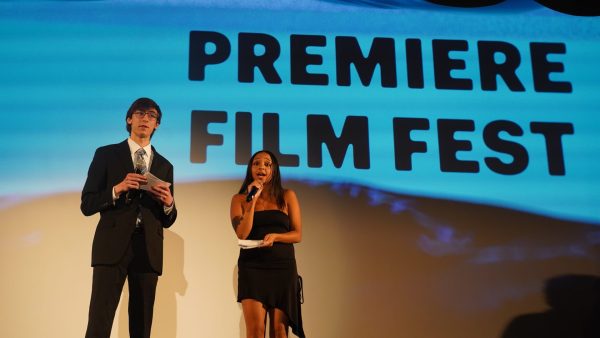

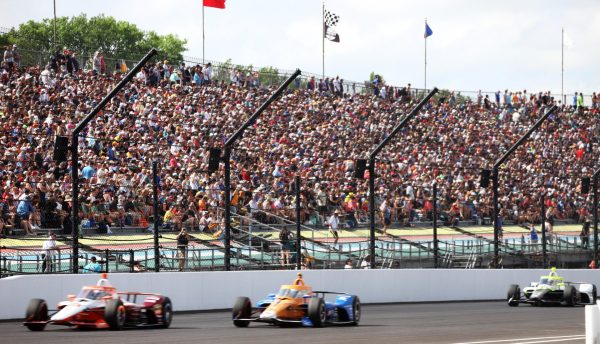
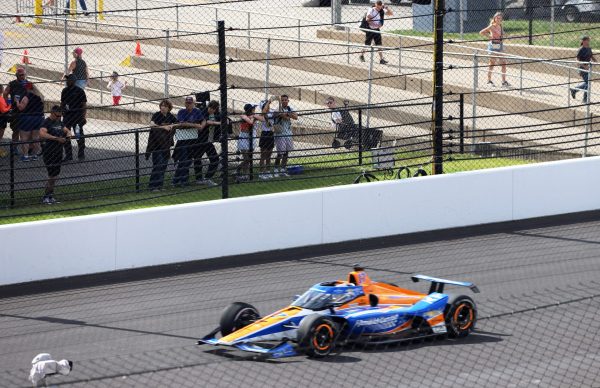
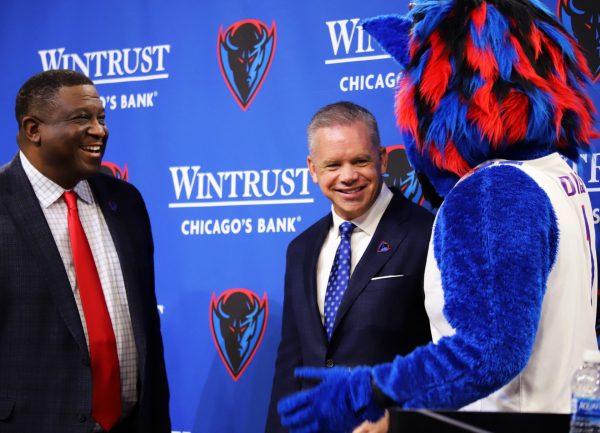
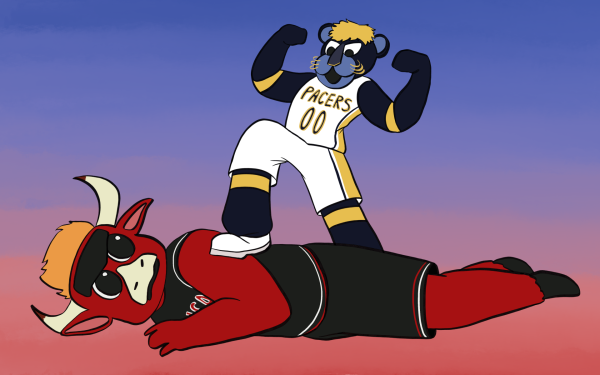
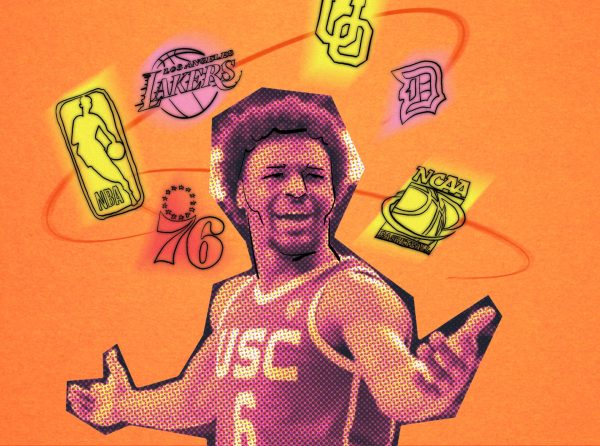


Dumb & Dumber II • Apr 23, 2021 at 10:11 pm
Great responses from all! You are all spot on, but DePaul will never, ever listen to you. The looney-left nitwits who run today’s version of this once great university say your criticism is the reason DePaul fails every year. They say, your criticism scares good players, staff and fans away. Yet, we know this is the thought process of perennial losers. The reality is if DePaul just listened to FREE, constructive, and honest advice decades ago,, we wouldn’t be experiencing Blue Demon hell every year!
Now, I sense Stapleton is a bright young man – minus some very naive statements in this article. He will not risk a potentially long, successful career on a loser athletic program like today’s DePaul. (Sorry folks, the truth stings.) I ask, why would this man, with his exceptional educational background and business pedigree, ruin his credibility by working at today’s DePaul? You can be assured his parents and colleagues are telling him right now to jump out of this garbage-dump fire and head back to Kentucky before his career is burned beyond recognition.
So, who does Peevy need to assist and advise him while he digs out of this bottomless, Blue Demon pit? Well folks, certainly not an “analytics expert” like Stapleton. DePaul’s answer is they must hire a man by the name of Coach Michael Ciepierski – go ahead and Google him and check his Twitter archives. For several years, this bright and accomplished alumnus of DePaul has offered FREE advice in order to get its basketball program back on track. Unfortunately, DePaul’s nitwit leadership discarded his intelligent, passionate and concentrated critique as an attack on them. Well, the truth hurts. Yet, we all know the the nitwits were only concerned about lining their own pockets.
With amazing detail, honesty and accuracy, Mr. Ciepierski had been calling for the removal of Leitao and Jean Lenti-Ponsetto for more than 5 years. (JLP for much longer.) He was spot on but DePaul never listened. Two years before the widely reported Eugene Lenti scandal, Mr Ciepierski was right there to warn leadership about a potentially serious problem within its softball program. He was spot on but DePaul never listened. Mr. Ciepierski informed DePaul’s leadership about the disturbing outcomes of a “confidential” meeting he had with JLP and former head coach and nice guy, Oliver Purnell. Unfortunately, one of the DePaul attendees allegedly shot their mouth off about the content of the private meeting. He was spot on but DePaul never listened. Mr. Ciepierski even advised DePaul about his fact-based concerns before the NCAA sanctioned its perennial-loser men’s basketball program. He was spot on but DePaul never listened.
All told, if DePaul listened to Mr. Ciepierski back in 2013, they would have saved millions on horrible head coaching hires, fired Jean Lenti-Ponsetto years ago, hired a real head coach, and DePaul could have rebuilt by now. We’d be tasting success, making millions with paying fans in the stands. and celebrating in the NCAA tournament by now. Mr. Ciepierski was spot on but DePaul never listened.
With Mr. Ciepierski’s proven business leadership, basketball expertise and strategic planning vision, he even offered to advise Jean Lenti-Ponsetto, pro bono, on how to straighten out the horrible mess she created. He was spot and and she never listened.
Mr. Ciepierski attempted to direct top basketball players to DePaul. However, DePaul coaches couldn’t figure out what time to show up in the morning. He was spot on when he called DePaul Basketball a pathetic mess many years ago but DePaul never listened.
The lesson and advice here is Peevy has a genius who is spot on about everything DePaul Basketball. Mr. Ciepierski loves DePaul to a fault, and he has been spot on with his expert advice for more than 8 years. But DePaul’s nitwits look at Mr. Ciepierski as someone who makes them look bad and dare I say, hurts their fragile feelings. Folks, once again, this guy is spot on about everything DePaul but DePaul never listened!
Getting back to this article, Stapleton may have technology and analytics expertise but all the technology in the world won’t put rear ends in the seat of a program that simply sucks and has no vision. If a creative hire like Mr. Ciepierski isn’t made, DePaul will continue to suck for the next 10 years – and probably longer. We all know, Peevy, Stubblefield and Stapleton are NOT the answer.
My honest advice to Peevy is to hire Coach Ciepierski as your COO. Let him make all the decisions, you can watch Kentucky Basketball games, and he’ll make you look look like a genius! Just look at everything he was right about for the last 8+ years! And remember, your bosses have been wrong about everything – including hiring you. DePaul’s nitwit leadership hasn’t got one thing right since firing Joey Meyer – and, in my opinion, they screwed that up because it should have been Bradshaw getting booted for sabotaging Meyer’s tenure.
Oh, Mr. Ciepierski is not my buddy, nor did he endorse this response. He just happens to be the hire DePaul needs right now. Unfortunately, only 10 people read DePaulia, so DePaul’s nitwit leadership will laugh all the way to another last-place finish next year, and again in 2023, and for many years after that. DePaul will finally turn its men’s basketball program around when Loyola acquires DePaul with all the money they have made from winning! Now, that’s a great revenue strategy, Stapleton!
Warren Clarke • Apr 23, 2021 at 3:13 pm
None of this stuff is all that complex. The way to generate revenue is to derive and deliver a product that consumers embrace. DePaul hasn’t done that with its basketball program since, what, the early 1990’s? That somebody actually thought that these two geniuses, “Frack and Frick” were the panacea is as perplexing as it is sad.
Well at least we’ve thus far been spared the protests in the middle of Fullerton Avenue decrying the fact that Mr. Stapleton is not a man of color and, as such, is completely unfit to serve in any capacity and this once great, proud but now Left leaning laughing stock of the Big East. How long before Renee Richards incarnate decides to throw in the towel and take her skill set from Peevy’s side of the street to Bruno’s? At least 74% of the current student body would ardently embrace that. DePaui could generate PLENTY of revenues selling tickets to this circus for sure…
The Two Stooges • Apr 22, 2021 at 8:28 am
These two are clueless and quite frankly an embarrassment to DePaul! Dumb and Dumber hit it right on the head!,
Winning is what generates revenue from corporate sponsorship, ticket sales, and donations, all of which DePaul hasn’t seen in years. Hiring a 53 year old men’s basketball coach with no head coaching experience and a 28 year old inexperienced to oversea revenue generation only proves Peevy was not a good hire. All Peevy has done is added a couple more incompetent staff members to an already joke of a staff he inherited from Jean Ponsetto. DEPaul had a great opportunity to hire a new AD that will bring DePaul Men’ s basketball back to being Chicago,’s team and they blew it! I can’t wait to get the call asking to donate or purchase tickets…NOT!!!!!
Dumb and Dumber! • Apr 20, 2021 at 6:09 pm
First, Peevy hired a 53-year-old head coach with absolutely no head coaching experience. In response, all but four of the remaining players transferred.
Now, Peevy’s right-hand money man, Taylor Stapleton, makes the idiotic statement: “Winning often helps revenue, but winning isn’t a revenue strategy,” This guy is a real genius…NOT! Who can we possibly ask about the impact winning men’s basketball games has done for their revenue strategy? Stapleton, please ask Loyola what winning did for their revenue strategy! Stapleton, please ask Villanova what winning 2 national championships did for their revenue strategy during their capital campaign!
And we are so thankful Peevy and Stapleton are on Twitter… but be gentle folks as Stapleton is very fragile by stating, “and sometimes it’s hard to hear the bad, but you have got to listen.” Poor, sensitive guy. Please use baby powder when changing Stapleton’s diaper.
Here’s a clue: DePaul Men’s Basketball just finished in last place…again. You have only 4 players remaining. Peevy and Stapleton: your first-year grade is an F!
Now, a child understands bringing back Billy Blue Demon as DePaul’s permanent logo is a slam dunk. It was only one of the most popular and recognizable logos in the country when, arguably, the worst AD in NCAA history, Jean Lenti-Ponsetto, thoughtlessly changed it to the unexplainable and unrecognizable logo of today. How’s that for revenue strategy?